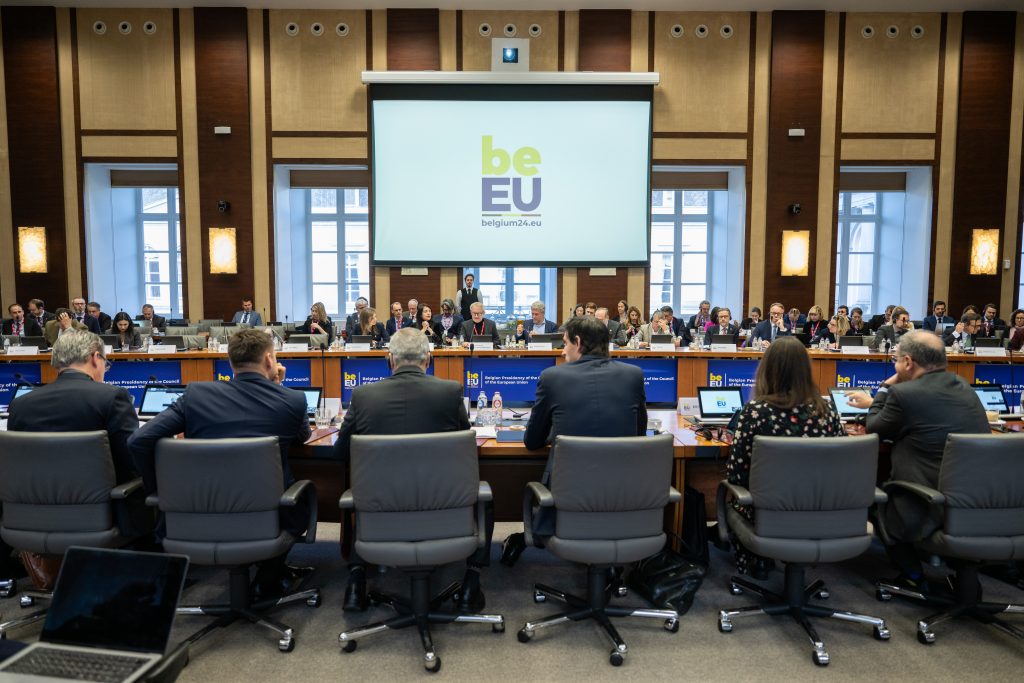Informal Environment Council
"We must create the conditions to achieve climate neutrality by 2050. We must also ensure a just transition, while adapting our territories to make them more resilient in the face of climate disruption. This informal Council has enabled Europe's environment ministers to work towards a common vision for achieving this objective.”
With these words, Alain Maron, Minister for Climate Transition, the Environment, Energy, Public Hygiene, Social Action and Health, concluded the informal environment Council on 16 January, after two days of intensive work.
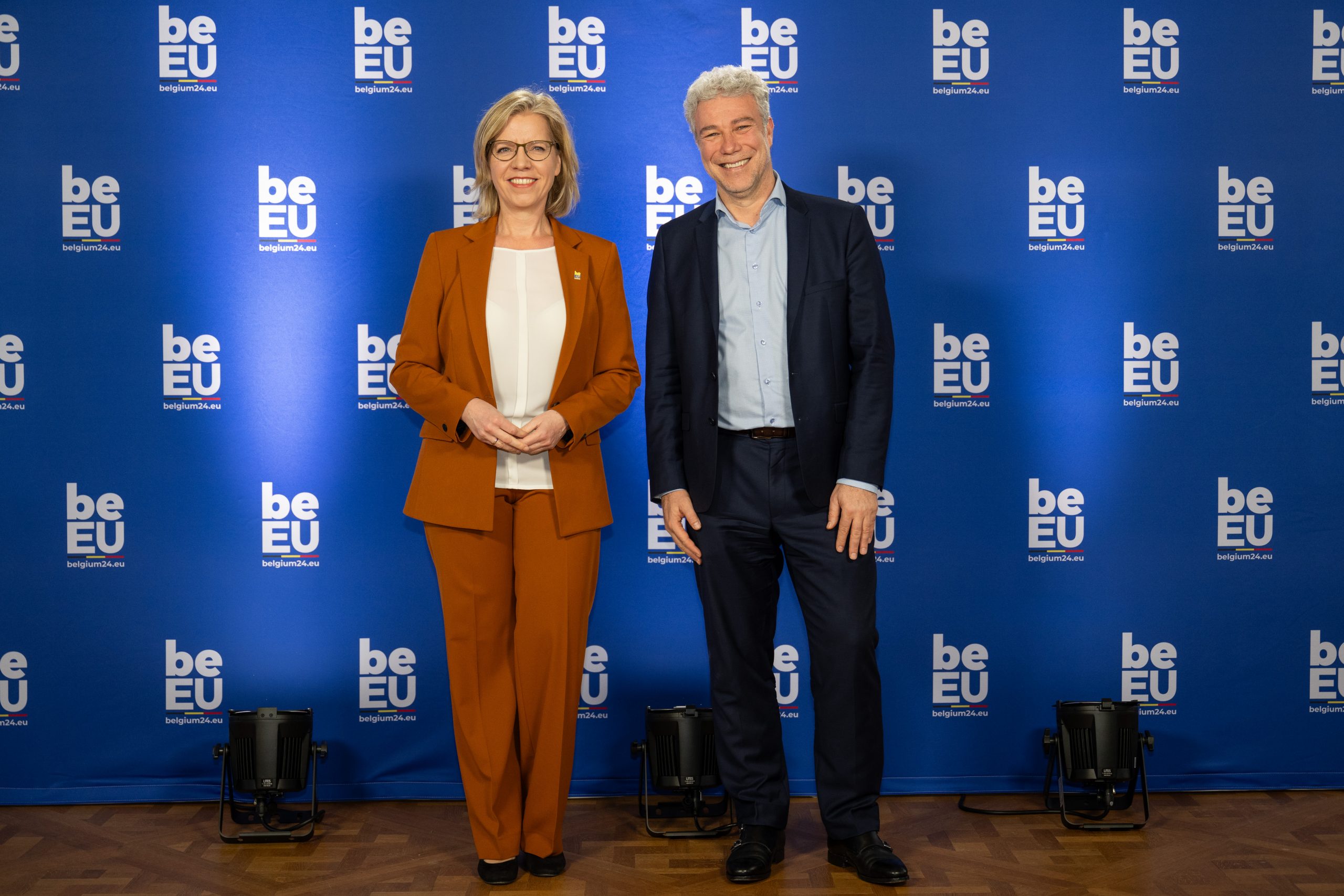
The Brussels-Capital Region, which presides the environment configuration of the Council of the European Union, brought together the 27 EU environment and climate ministers, the ministers of the EFTA countries, as well as the European Environment Bureau and the European Environment Agency.
An informal meeting provides an opportunity to depart from the highly structured nature of EU Council meetings and introduce participants who bring fresh perspectives to the subject. Belgian author and essayist David van Reybrouck kicked off the discussion, highlighting the crucial role of citizens and anchoring the current issues in concrete reality, particularly citing the devastating floods of summer 2022. A Belgian graffiti artist and painter, Denis Meyers, created a mural illustrating the aspirations of the Council participants, with words symbolising hope in the face of the environmental and climate challenges ahead.
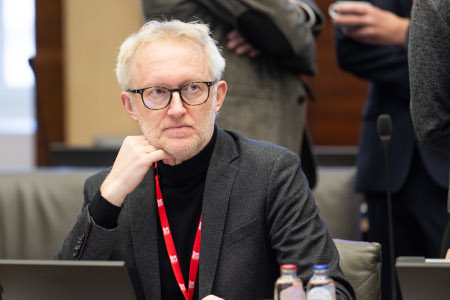 |
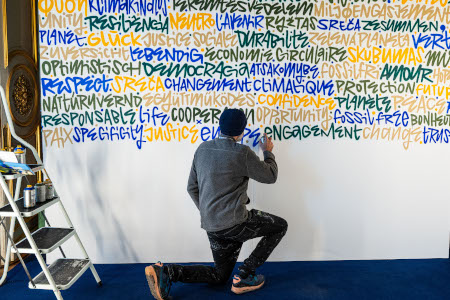 |
As we enter a new year, the European Union is forging a path towards robust environmental policies and strategies, as demonstrated by the recent discussions held at various sessions highlighting the Belgian accents and emphasising the cross-cutting nature of these themes.
Adaptation and resilience: preparing for an uncertain future
Leena Ylä-Mononen, Executive Director of the European Environment Agency, presented the European Climate Risk Assessment (EUCRA), which is set to be published in April 2024, revealing that there is a shared responsibility between the EU and its Member States in addressing climate change. The ministers stressed the need to integrate adaptation strategies into all sectoral policies, with a particular focus on protecting biodiversity, nature-based solutions, water resilience and reducing greenhouse gas emissions. They also shared the need to strengthen the EU’s resilience, which is necessary to ensuring a liveable and enjoyable future for all Europeans.
Just transition: striking a balance between climate goals and social justice
The European Economic and Social Committee (EESC) presented the six pillars of its policy framework for a just transition, which aims to promote a climate-neutral, sustainable and circular society and economy by 2050. Commissioner Wopke Hoekstra emphasised the international dimension of a just transition and called for its integration into European policy. The ministers stressed the importance of an inclusive transition, social dialogue, stakeholder consultation, and citizen participation. The discussions included recommendations such as the creation of a Just Transition Observatory and the appointment of a European Just Transition Commissioner.
Circular economy and resource efficiency: charting a sustainable course
The preliminary results of the “Global Resource Outlook”, due to be published in February, and the forthcoming report on the circular economy underline the importance of sustainable resource management. Member States recognised the role of the circular economy and highlighted the challenges in implementing and integrating the many initiatives launched under the European Green Deal and the Circular economy action plan into their national legislation.
In a private lunch session, the ministers discussed the aspects of the European Green Deal that require strengthening in the next legislative cycle. They stressed that the green transition is essential to the competitiveness of European industry, emphasising the importance of predictability until 2050. They also stressed the need to ensure a fair and inclusive transition. Several areas with untapped potential were identified, including carbon offsets, sustainable food systems and the circular economy.
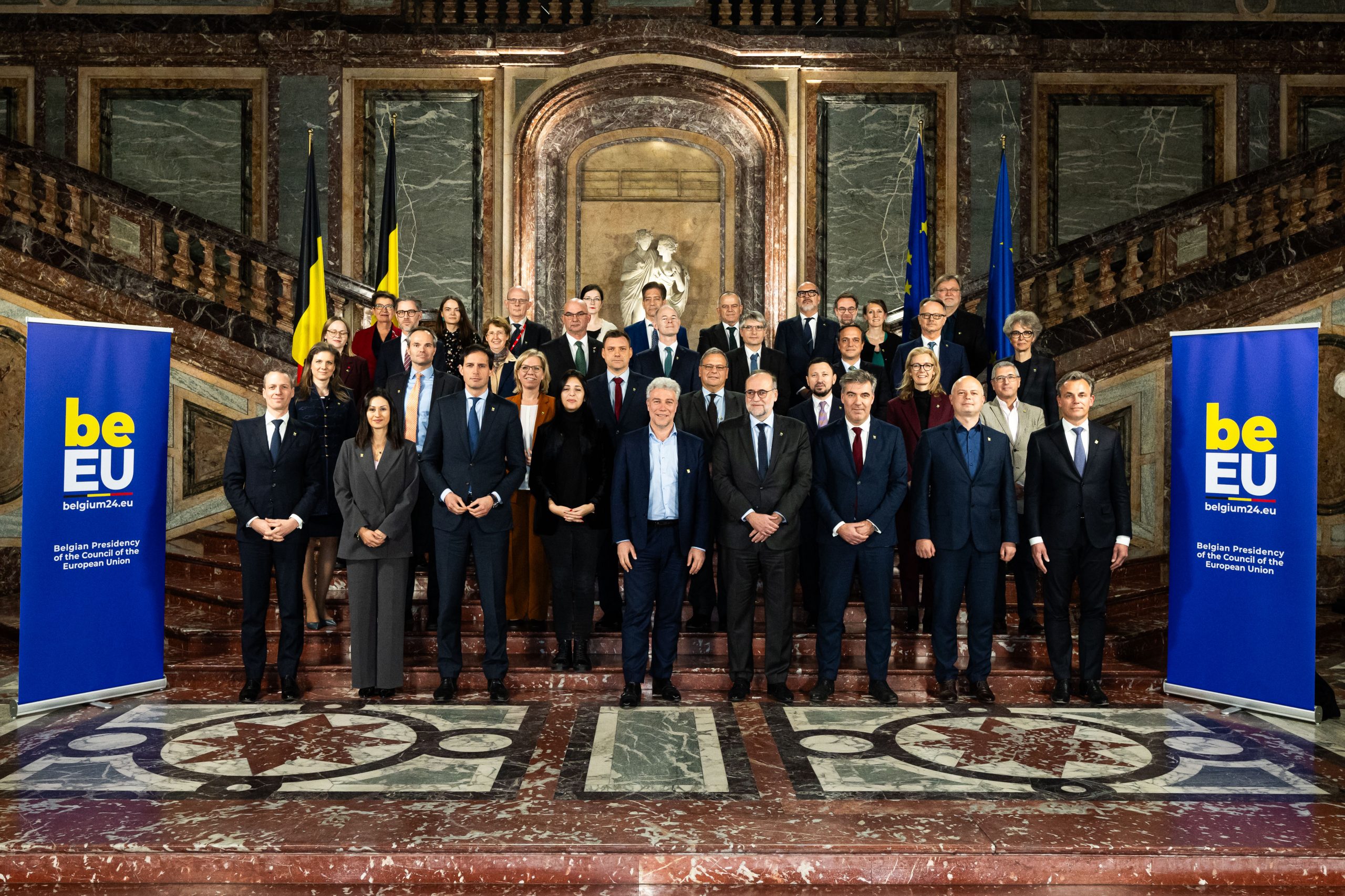
As we navigate the challenges of the future, these insights from recent EU environmental discussions provide a window into Europe’s collective commitment to sustainable and resilient Europe.
For more information on these crucial initiatives that are shaping our environmental landscape, stay tuned to the Belgian presidency and Brussels Environment website.



